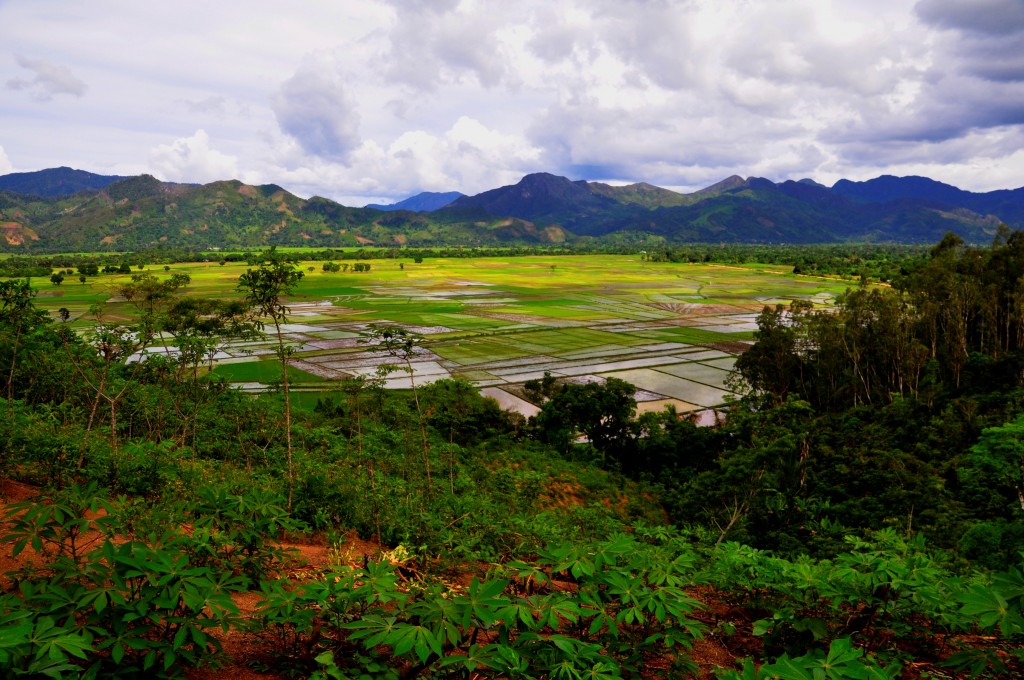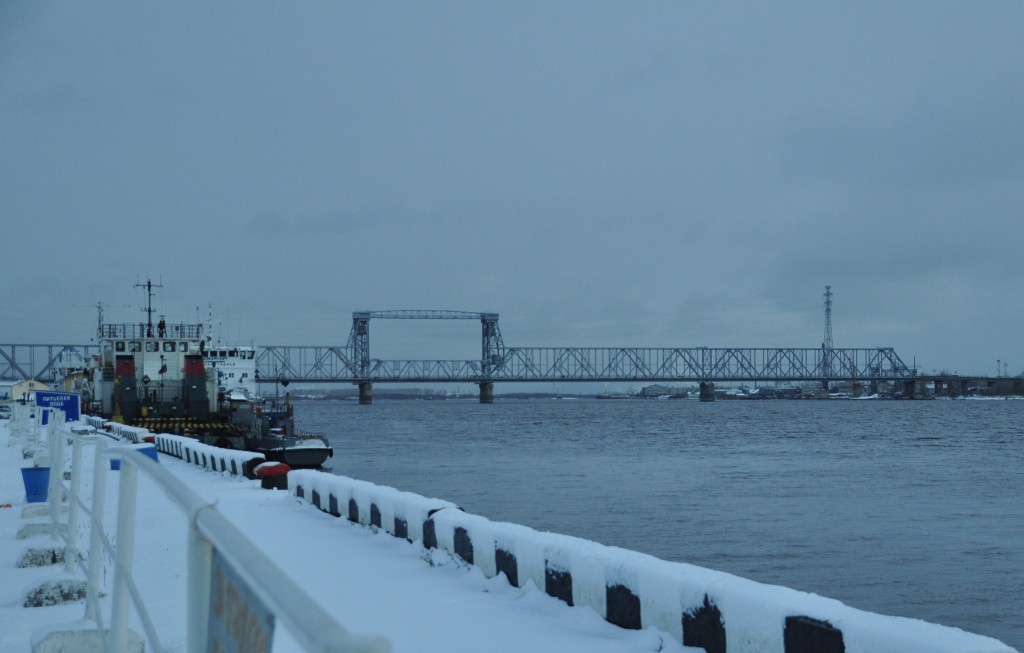Search Results for Tag: franziska badenschier
Rice crop in danger in Madagascar
In the coming days, rice fields will be buzzing with activity again in Madagascar – at least that’s the hope. The end of November usually spells harvest time in the small island country. But last November, there was simply no rice to harvest in the northeast of the country, near the Marojejy National Park. When I visited the director of the park, Jean Hervé Bakarizafy, in early 2012, he told me that cultivating rice is supposed to run like clockwork. “In Andapa, a small town near the entrance of the park, people plant rice twice a year. They plant at the end of January and harvest in May. In July, they prepare their fields for the second season. They plant again in August and harvest for the second time at the end of November,” he said.
But Bakarizafy’s face dropped when he told me about the changes that occurred in 2011. “In the middle of 2011 – during our winter season – it was too dry to plant the second round of rice. There was absolutely no water left,” he said. And he’s certain that it wasn’t just a fluke. Elderly villagers who have lived in the area their entire lives started to speak up, and they all seemed to agree: in recent years, the weather seemed to be getting drier and drier.
The World Bank’s climate data portal confirms their concerns. “In the central regions and along the east coast, the amount of rainfall has fallen steadily between 1961 and 2005, accompanied by longer periods of drought,” said the World Bank, identifying the declining precipitation as a “major trend” for Madagascar. The organization also said that rainfall was noticeably less in winter and spring months – the middle of the year for Madagascar, which is located in the southern hemisphere.
Bakarizafy added that those weather patterns could spell disaster for rice farmers. “The people are very worried because if it goes on like this, they might not be able to get in the second harvest of the year anymore,” he said. That would mean the people in and around Andapa wouldn’t have enough rice for themselves, and they would be forced to sell less. At the market, prices for one kapoka, or scoop, of rice would go up.
And that in a country that is one of the largest consumers of rice in the world. The average person in Madagascar eats nearly 100 kilograms of rice a year. There is rice soup in the morning, and at lunch and dinner there is rice with white beans, green beans and carrots, a chili paste or meat. Back in 2010, the island’s agricultural minister said that rice accounts for more than half of all calories consumed in the country and 80 percent of all village families worked in rice cultivation. At that time, Madagascar had just joined the non-profit research center AfricaRice, and the organization estimated that Madagascar would need to import some 200,000 tons of rice a year to meet the growing demand.
So it’s no wonder that the farmers of Andapa are hoping they can harvest as much rice as possible in the next few days.
Author: Franziska Badenschier
Editor: Sumi Somaskanda
Vaccination for everyone, the polar way
 “Have they cleared the landing strip?”, I asked my seat neighbour when our plane was about to land in the North Russian city of Archangelsk last wednesday. My seat was not on the window, all I could see was right in front of the small window: a lot of snowflakes twirling in the air. It is winter already. When we took off in Berlin in the morning, the autumn sun rose. “Yes, they did”, the colleague next to me answers. “There is less snow underneath our plane then aside us.” The plane slows down.
“Have they cleared the landing strip?”, I asked my seat neighbour when our plane was about to land in the North Russian city of Archangelsk last wednesday. My seat was not on the window, all I could see was right in front of the small window: a lot of snowflakes twirling in the air. It is winter already. When we took off in Berlin in the morning, the autumn sun rose. “Yes, they did”, the colleague next to me answers. “There is less snow underneath our plane then aside us.” The plane slows down.
The next morning, all the snow is thawed. A local man says: “It is quite mild for this time. Normally it is snowing already in middle of October.” Is it just freak weather or already climate change? I prefer not to ask that question.
It emerges that people in Archangelsk do not really believe in climate change: It’s not so bad, they say, all natural. That’s the undertone at a discussion panel on the German-Russian Media forum that is running at the moment in Archangelsk.
I am almost relieved, as a researcher from Northern Public Medical University says: “The existence of climate change is beyond all question”. But a second later I wince as she continues: “We are not interested in what is causing climate change. If humans are responsible … who knows.” It would be more important to think of the consequences and to protect the health of the people. The health professional Zhanna Varakina has contributed to a research project of the World Health Organisation (WHO). The project title is truly condensed, in terms of a scientific paper: “Impact of climate change on human health and assesment of possibilites for adaption in the North of Russia.”
Varakina finally found out: Today there are sixty times more cases of tick-borne encephalitis as there were 15 years ago. What this means in absolute numbers, she can’t tell instantly. Tick-borne encephalitis, short TBE, is caused by virus-infection. These viruses get into the human body when one is bitten by a virus-infected tick. “20 years ago those infected tics could not be found here. It was simply too could, so they couldn’t survive here as tics are very sensitive to temperature”, the researcher says. But nowadays it is here, in Archangelsk, northern of 64th latitude, warm enough for them. A look at the online availiable climate-tables reveals for Archangelsk: In winter the montly average temperature ranges from zero to minus 13 degree Celsius – in summer it is 16 degrees on average and maximum temperature is 21,8 degrees. To me, this still seems quite brisky, but if the ticks feel fine with this…
So I ask the researcher: How do you protect the 350.000 inhabitants of Archangelsk – with a TBE vaccination, as is customary in Germany? “That would be too expensive” she answers. The TBE vaccination is said not to be included in the national vaccination schedule, which means everybody would have to pay for it on his own. But actually, the vaccination is not necessary, she adds: “In spring, two weeks before the snow starts thawing, we distribute chemicals against those animals.”
Franziska Badenschier






Feedback